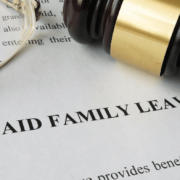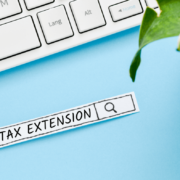“Qualified Improvement Property” Changes with New COVID-19 Law
- Learn how the new COVID-19 law changes tax rules around QIP.
- Find out if your new expenditures will be affected by the new COVID-19 law.
- Learn about the guidelines regarding past QIP and if the new 100% bonus depreciation applies to you.
- Learn more about claiming 100% bonus depreciation for taxes already filed.
Congress is stepping up to offer relief to those affected by the coronavirus (COVID-19) pandemic. A new law contains a welcome change in the tax rules for many improvements to interior parts of nonresidential buildings. This refers to qualified improvement property (QIP). As you may recall, under the Tax Cuts and Jobs Act (TCJA), any QIP placed in service after December 31, 2017 could not claim 100% bonus depreciation. Therefore, the TCJA required the cost of qualified improvement property to be deducted over a 39-year period rather than entirely in the year the QIP was placed in service. This was due to an careless drafting mistake made by Congress.
The CARES Act offers 100% bonus depreciation for QIP
Problem now solved! The Coronavirus Aid, Relief, and Economic Security (CARES) Act became law on March 27, 2020, and Fiducial has good news! Most businesses may now claim 100% bonus depreciation for QIP as long as they meet certain other requirements. Also helpful: This correction is retroactive. It applies to any qualified improvement property placed in service after December 31, 2017. Unfortunately, improvements related to the enlargement of a building do not qualify. For instance, any elevator or escalator, or the internal structural framework continue to not qualify under the definition of QIP.
In the current business climate, you may not be in a position to undertake new capital expenditures. Even if needed as a practical matter and even if the substitution of 100% bonus depreciation for a 39-year depreciation period significantly lowers the true cost of QIP, you may need to pass. However, it’s good to know that when you’re ready to undertake qualifying improvements, that 100% bonus depreciation will be available.

How to claim past qualified property improvement expenses
In addition to new QPI, the retroactive nature of the CARES Act provision presents favorable opportunities for qualifying expenditures you’ve already made. We can revisit and also add to documentation that you’ve already provided to identify qualified improvement property expenditures.
Also, for not-yet-filed tax returns, we can simply reflect the favorable treatment for QIP on the return.
If you’ve already filed returns that didn’t claim 100% bonus depreciation for what might be QIP, we can investigate. We will use available documentation as discussed above. If you have QIP that was eligible for 100% bonus depreciation, note that the IRS has, for past retroactive favorable depreciation changes, provided taxpayers with detailed guidance for how the benefit is claimed. Specifically, the IRS clarified some things. For instance, we now know how much flexibility taxpayers have in choosing between a one-time downward adjustment to income on their current returns or an amendment to the return for the year the QIP was placed in service. Fiducial will evaluate your options as anticipated IRS guidance for the qualified improvement property correction comes out.
Have questions about how you can take advantage of the QIP provision? Call Fiducial at 1-866-FIDUCIAL or make an appointment at one of our office locations. Ready to book an appointment now? Click here. Know someone who might need our services? We love referrals!
For more small business COVID-19 resources, visit Fiducial’s Coronavirus Update Center to find information on SBA loans, tax updates, the Paycheck Protection Program, paid sick and family leave, and more.









